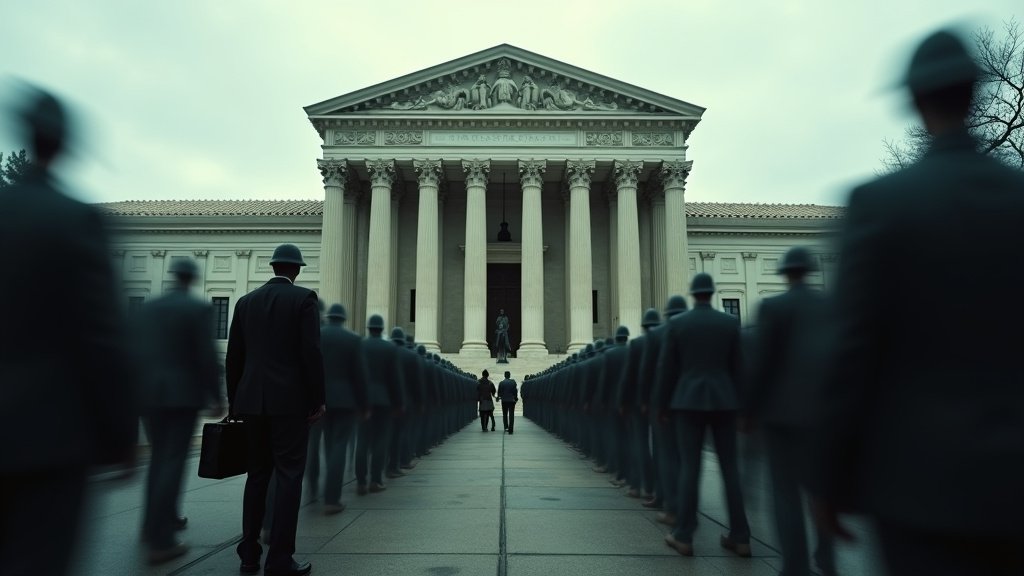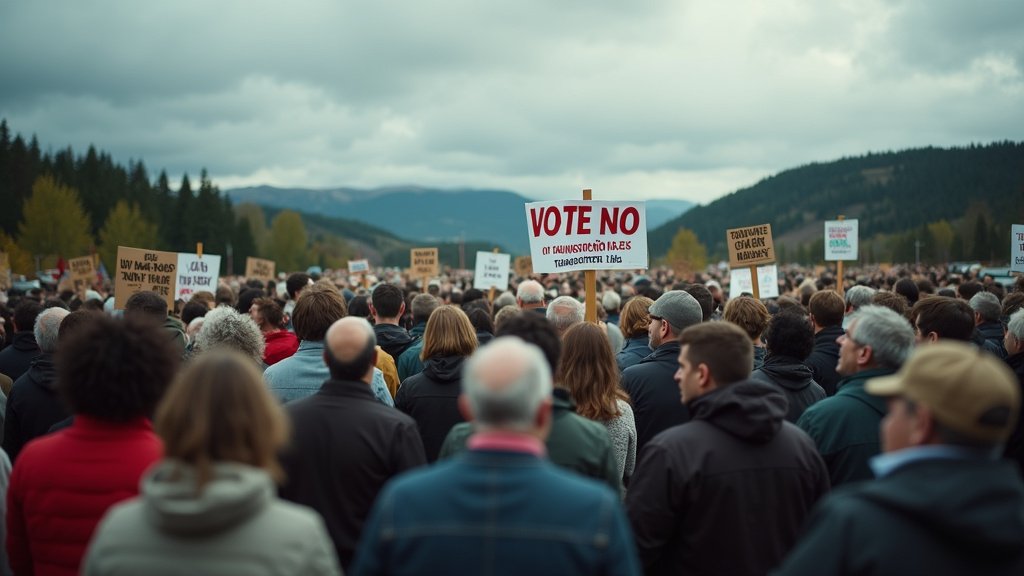Judge Considers Extending Blockade on National Guard Portland Deployment Amidst Legal Firestorm
A critical judicial hearing is set to determine the fate of a temporary restraining order that has so far prevented the federal government from deploying National Guard troops to Portland. U.S. District Court Judge Karin Immergut is scheduled to preside over a conference Wednesday morning, October 15, 2025, to decide whether to extend the order that has become a focal point in the ongoing legal and political battle concerning the National Guard Portland deployment and Oregon state rights. This legal battle over National Guard Portland is crucial for understanding federal overreach.
The legal dispute centers on the federal government’s attempts to mobilize National Guard forces, initially those belonging to Oregon and later federalized troops from other states, to Portland. Oregon Governor Tina Kotek, along with Attorney General Dan Rayfield, have vehemently opposed these deployments, arguing they are unlawful, unnecessary, and an overreach of presidential authority, particularly concerning the National Guard Portland situation. The Governor’s opposition to the National Guard Portland deployment is well-documented and highlights concerns about Oregon state rights.
Roots of the Conflict: Federalization vs. State Sovereignty and the National Guard Portland Deployment
The controversy ignited when President Donald Trump announced his intention to deploy troops to Portland, citing threats to federal property and U.S. Immigration and Customs Enforcement (ICE) facilities, which he characterized as being under siege by “Antifa and other domestic terrorists” in a “war-ravaged Portland.” The Trump administration invoked Title 10 of the U.S. Code, specifically Section 12406, which permits the federalization of National Guard units under specific conditions such as invasion, rebellion, or when federal laws cannot otherwise be executed, leading to the current National Guard Portland controversy. This move by Trump federalization sparked the National Guard Portland legal battle.
Governor Kotek and Attorney General Rayfield quickly pushed back, asserting that the situation on the ground in Oregon did not meet these stringent legal thresholds for a National Guard Portland deployment. They contended that local and state authorities were capable of managing public safety and that federal intervention was not only unwarranted but also an infringement on Oregon state rights and a potential violation of laws like the Posse Comitatus Act, which generally restricts the military’s role in domestic law enforcement, further complicating the National Guard Portland issue. The Posse Comitatus Act is a key element in the National Guard Portland debate.
Judge Immergut’s Restraining Orders on National Guard Portland Deployment
On October 4, 2025, U.S. District Judge Karin Immergut, a Trump appointee, granted Oregon’s initial request for a temporary restraining order (TRO), blocking the President from federalizing and deploying approximately 200 Oregon National Guard troops to Portland. In her ruling, Judge Immergut found that the President’s justifications were “untethered to the facts” and that the protests did not rise to the level of “rebellion” required by law, directly impacting the National Guard Portland deployment. She emphasized that the nation operates under constitutional law, not martial law, and that federal power must remain carefully constrained in domestic affairs. The Judge Immergut ruling is central to the National Guard Portland standoff.
Despite this initial ruling, the federal administration attempted to circumvent the order by federalizing and deploying National Guard troops from other states, notably California and Texas, to Portland. This move prompted an immediate response from Oregon, joined by California as a co-plaintiff, leading to an emergency hearing regarding the National Guard Portland deployment. On October 5, 2025, Judge Immergut issued a second, broader TRO, explicitly prohibiting the deployment of any federalized National Guard forces from any state or the District of Columbia into Oregon. She questioned how bringing in federalized National Guard from another state could not be in direct contravention of her prior order, noting that “nothing has changed” on the ground in Portland, thus continuing the blockade on the National Guard Portland deployment. The Oregon National Guard remains under this blockade due to the National Guard Portland legal challenges.
Legal Scrutiny and Appeals: National Guard Portland Standoff
The legal challenges highlight a fundamental tension between federal authority and Oregon state rights, and the judiciary’s role in arbitrating such disputes, particularly concerning the National Guard Portland deployment. The federal government appealed these decisions, and a panel of judges at the U.S. 9th Circuit Court of Appeals heard arguments regarding the legality of the deployment orders. While the Ninth Circuit issued a temporary stay allowing the Oregon National Guard to remain federalized pending a final ruling, it continued to prohibit their deployment to Portland itself, prolonging the legal standoff over the National Guard Portland deployment. The current hearing on October 15 is the next step in determining the extension of these blocking orders on the National Guard Portland deployment. This Portland legal battle is far from over, and the National Guard Portland situation remains tense.
Local Response and Ongoing Security Amidst National Guard Portland Debate
While the legal battles unfold, local authorities in Portland are managing the security around the U.S. Immigration and Customs Enforcement facility. Portland Police Chief Bob Day has stated that the city’s police bureau, in collaboration with the Oregon State Police, can adequately manage the situation and that federal troops are not needed for the National Guard Portland deployment. Chief Day has expressed confidence in his officers’ ability to maintain public safety, emphasizing that the situation on a single city block does not reflect the entire city and that the focus remains on de-escalating tensions and protecting residents’ rights to peaceful demonstration, while the National Guard Portland debate continues. The presence of federal troops for ICE facility security was a catalyst for the National Guard Portland issue.
The Hearing and Future Implications for National Guard Portland
The hearing scheduled for Wednesday morning will address whether Judge Immergut’s TROs should be extended, effectively continuing the blockade against federalized National Guard deployments to Portland. The decision will have significant implications for the balance of power between federal and state governments, the interpretation of presidential authority during domestic unrest, and the ongoing efforts to ensure public safety and the right to protest in Oregon’s largest city, all stemming from the National Guard Portland controversy. This TRO ruling is a key moment in the Kotek vs Trump legal battle. The future of National Guard Portland deployments hinges on this ruling.
Whatever the ruling, it is likely to be closely watched, as it touches upon core democratic principles regarding federal overreach and the rule of law. The news surrounding these court proceedings continues to develop, with officials and citizens alike awaiting a resolution to this contentious legal standoff. This ongoing news from Oregon underscores the persistent debates surrounding federal authority in domestic affairs and the specific context of the National Guard Portland deployment. The National Guard Portland situation exemplifies these broader concerns, and the potential for federalization of National Guard units remains a point of contention.
Further reading: Related News on Google




